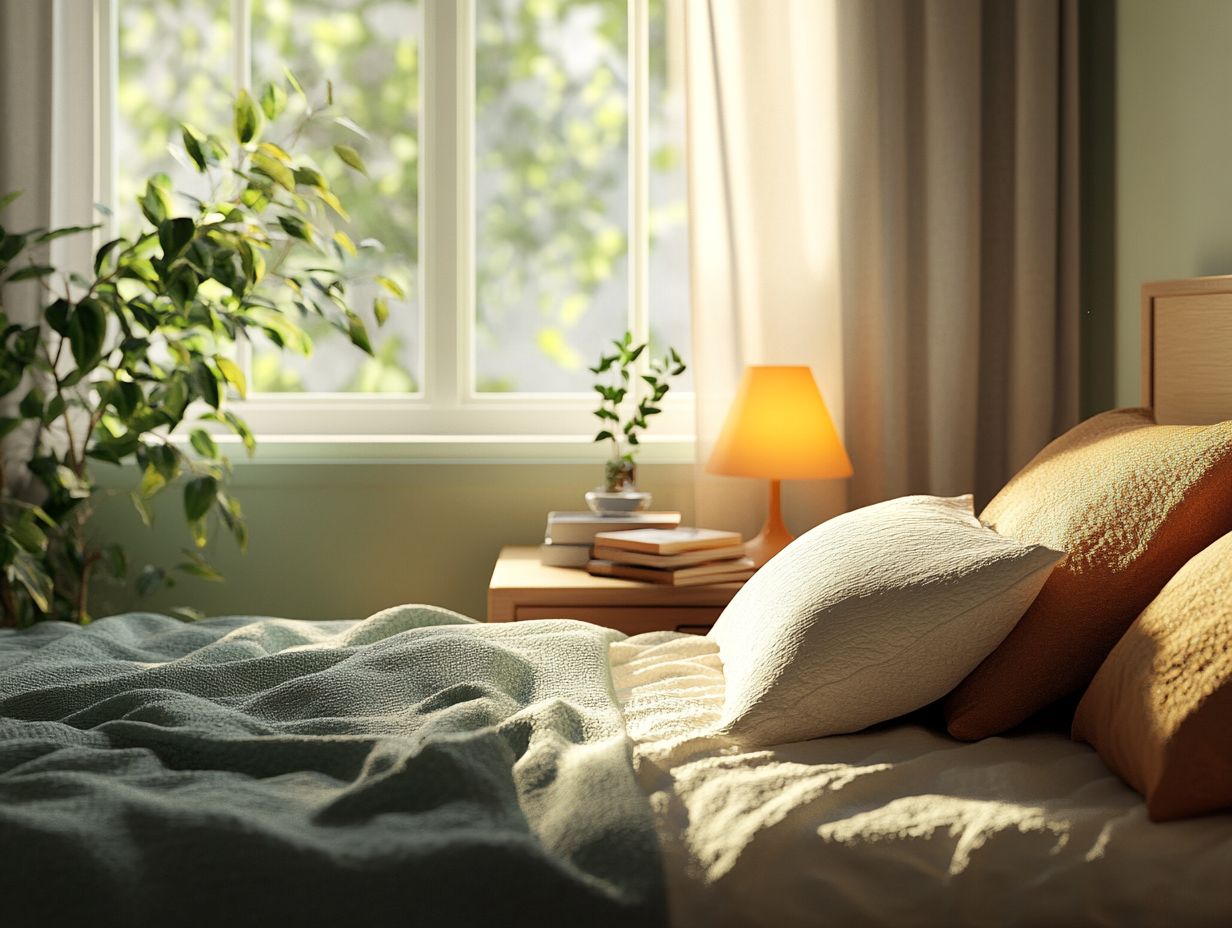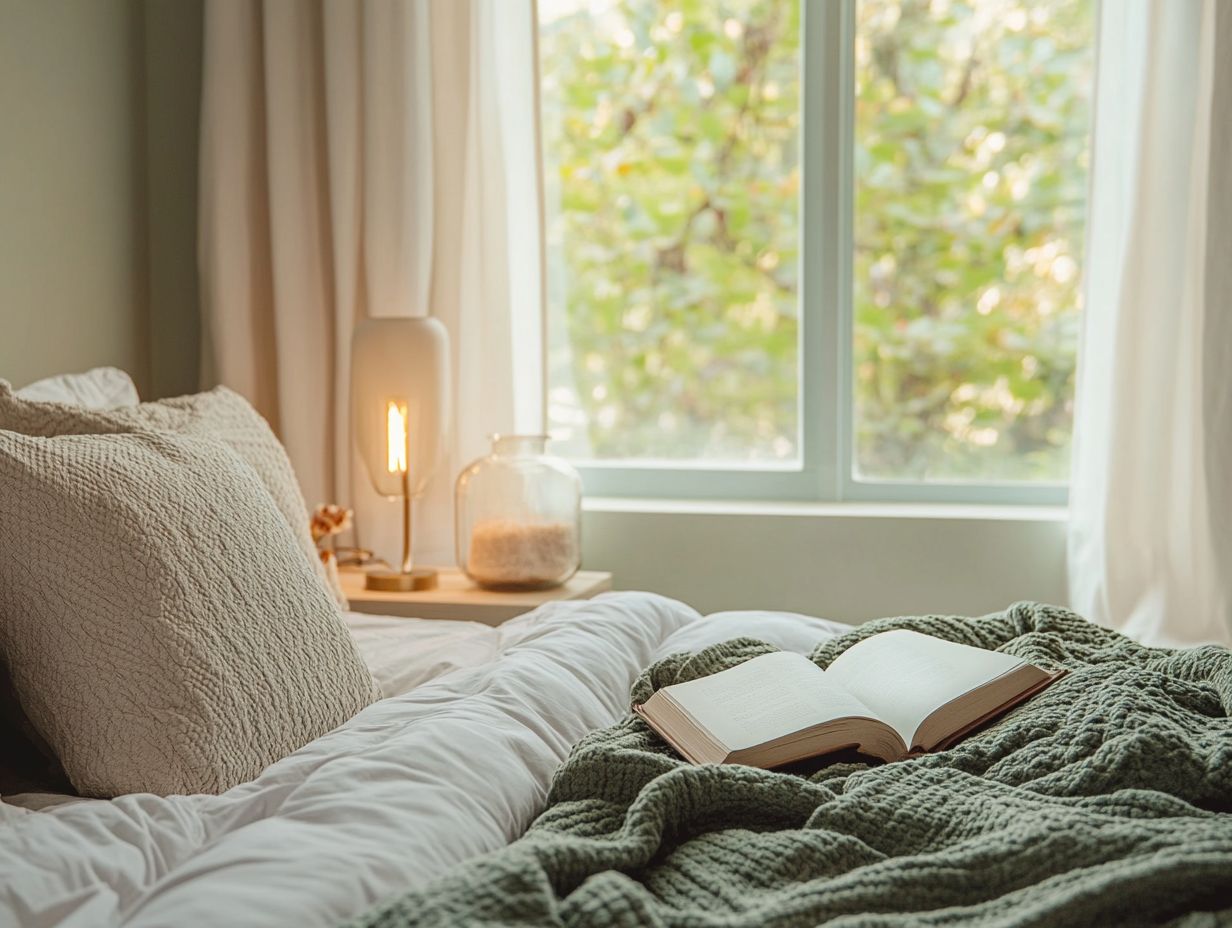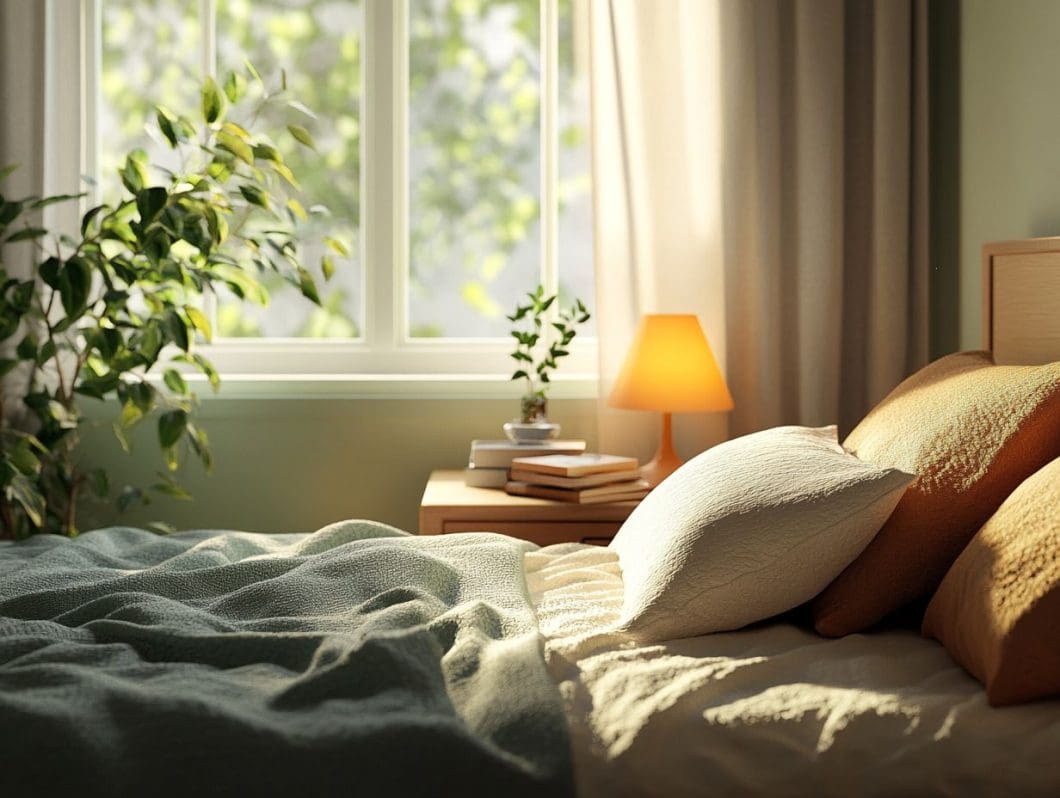Sleep is more than just a nightly ritual; it’s a cornerstone of overall wellness and beauty.
The quality of our sleep affects everything from our mood and cognitive function to our skin’s appearance.
This article explores the concept of sleep hygiene and its impact on daily life.
Learn how to create a sleep-friendly environment, establish a calming bedtime routine, and adopt healthy habits that promote restorative sleep.
Table of Contents
Plus, discover the surprising beauty benefits of a good night’s rest.
Ready to unlock the secrets to better sleep and radiant skin? Let’s get started!
Key Takeaways:

- Quality sleep is crucial for overall health and beauty. Lack of sleep can negatively impact physical, mental, and emotional well-being.
- Creating a sleep-friendly environment and establishing a bedtime routine can improve the quality of your sleep. Keep your bedroom dark, quiet, and cool for optimal rest.
- In addition to good sleep hygiene practices, maintaining healthy habits such as proper nutrition, regular exercise, and stress management can contribute to better sleep and enhance your appearance.
The Importance of Sleep Hygiene
Sleep hygiene is essential for maintaining overall health and wellness, as it has a direct impact on sleep quality and the risk of developing various sleep disorders. Considering the increasing prevalence of sleep deprivation in contemporary society, understanding and implementing effective sleep hygiene practices is crucial for achieving improved sleep outcomes. For more information, check out this guide on Sleep Hygiene: Tips for Better Rest and Beauty.
According to the Cleveland Clinic and experts such as Nancy Foldvary-Schaefer, prioritizing sleep hygiene can significantly enhance both physical and mental health. This practice involves creating a conducive sleep environment, establishing a consistent bedtime routine, and addressing any underlying sleep issues through sleep medicine and cognitive behavioral therapy.
Understanding the Impact of Quality Sleep

Quality sleep plays a critical role in both physical health and mental well-being, influencing various aspects ranging from cognitive function to emotional stability.
Research has demonstrated that sleep deprivation can result in numerous health complications, including compromised immune function, an increased risk of cardiovascular diseases, and impaired metabolic regulation. According to the Centers for Disease Control and Prevention, nearly one-third of adults report not achieving adequate rest, which can lead to mood disorders, elevated stress levels, and diminished productivity.
Furthermore, studies indicate that insufficient sleep adversely affects memory consolidation and decision-making abilities, creating a cycle that exacerbates disruptions in sleep patterns.
Ultimately, understanding individual sleep needs is essential, as fostering better sleep hygiene can significantly enhance overall well-being, contributing to healthier and more vibrant lives.
Creating a Sleep-Friendly Environment
Establishing a sleep-friendly environment entails optimizing the bedroom for relaxation and comfort, a critical factor in achieving quality sleep.
Optimizing Your Bedroom for Better Rest

Optimizing the bedroom for improved rest entails adjusting light exposure, selecting an appropriate mattress, and implementing relaxation techniques to enhance sleep quality.
To establish an ideal sleep environment, it is advisable to install blackout curtains that effectively block external light, thereby facilitating a deeper and more restorative slumber.
Regulating the room’s temperature is crucial; research indicates that maintaining a cooler environment can promote healthier sleep patterns.
In the selection of a mattress, personal preference is paramount; it is essential to choose one that provides adequate support and comfort tailored to individual sleep positions.
Additionally, integrating calming aromas, utilizing soft textiles, and practicing mindfulness exercises prior to sleep can significantly enhance relaxation levels, contributing to a rejuvenating night’s rest.
Establishing a Bedtime Routine
Establishing a consistent bedtime routine is essential for signaling to the body that it is time to wind down and prepare for restful sleep. This practice can significantly enhance overall sleep quality.
Effective Practices for Preparing for Sleep

Incorporating effective practices into bedtime rituals can significantly enhance sleep schedules and promote relaxation before sleep.
By giving careful consideration to evening habits, such as avoiding heavy meals prior to bedtime, individuals can mitigate discomfort that often disrupts restful slumber. Regulating alcohol consumption is also crucial, as it can negatively impact the body’s natural sleep cycles.
Engaging in relaxation exercises, such as gentle stretching or mindfulness meditation, establishes a calming atmosphere that fosters a tranquil state of mind.
When these practices are consistently integrated into nightly routines, they contribute to deeper, more restorative sleep, ultimately enhancing overall well-being.
Healthy Habits for Better Sleep
Adopting healthy habits, including a balanced diet, regular exercise, and effective stress management techniques, is essential for achieving improved sleep quality. For more information, check out Sleep Hygiene: Tips for Better Rest and Beauty.
Nutrition, Exercise, and Stress Management
Nutrition, exercise, and stress management are interconnected factors that significantly influence melatonin production and overall sleep quality. The dietary choices individuals make can lead to either restorative rest or restless nights, largely determined by nutrient intake and meal timing.
For example, a diet rich in tryptophan can effectively enhance serotonin levels, subsequently increasing melatonin production. Additionally, regular physical activity is recognized for its ability to promote deeper sleep phases and improve circadian rhythms, making it essential for those seeking to enhance their sleep patterns.
Furthermore, effective stress management techniques, such as mindfulness and yoga, can reduce cortisol levels that may otherwise disrupt sleep. In cases where these lifestyle adjustments prove insufficient in achieving adequate rest, individuals may need to explore the option of sleep medications. Such medications should be considered under professional guidance to bridge the gap between inadequate rest and the desired quality of sleep.
Beauty Benefits of Quality Sleep
Quality sleep provides a multitude of beauty benefits that contribute to improved skin health and overall appearance, establishing it as a fundamental aspect of any effective beauty regimen.
How Sleep Affects Your Skin and Appearance
The relationship between sleep quality and skin health is significant, as sleep deprivation can result in visible signs of aging and reduced skin vitality.
A deficiency in restorative sleep prompts the release of cortisol, a stress hormone that can aggravate skin conditions such as acne, eczema, and psoriasis. During deep sleep, the body engages in essential repair processes, replenishing cells and facilitating collagen production, which is critical for maintaining a youthful appearance.
Incorporating relaxation techniques, such as meditation, deep breathing, or yoga, can substantially enhance sleep quality, promoting more restful nights. Consequently, this natural improvement in sleep can lead to brighter, more radiant skin, thereby elevating overall beauty and enhancing confidence.


